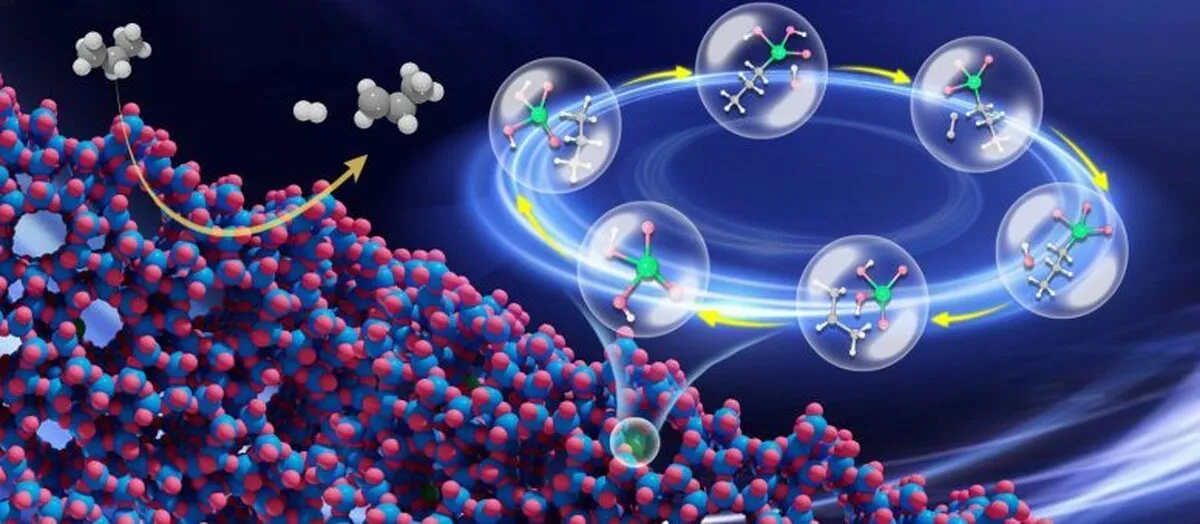Cobalt Catalyst Outperforms Precious Metals

Propane dehydrogenation is an important industrial method for producing propylene without depending on oil. However, most current processes still depend heavily on precious-metal catalysts like those made with platinum. Finding efficient alternatives that use more common, earth-abundant metals has proven difficult, the journal Nature Catalysis reported.
In a study, Prof. Jianping Xiao’s team at the Dalian Institute of Chemical Physics (DICP) of the Chinese Academy of Sciences, along with their collaborators, developed a high-performance cobaltosilicate zeolite catalyst called CoS-1 using a hydrothermal synthesis method. This catalyst contains only tetrahedral cobalt sites and no unstable cobalt species. It achieved a propylene productivity of 9.7 kgC3 per kg of catalyst per hour, outperforming the industrial PtSn/Al2O3 catalyst.
The synthesis involved preparing a gel made from cobalt salts, tetraethyl orthosilicate, tetrapropylammonium hydroxide (TPAOH), urea, and water, followed by crystallization at 180 °C. After calcination to remove the organic template and three rounds of nitric acid washing at 80 °C to eliminate excess cobalt, the resulting CoS-1 catalyst retained only the stable tetrahedral cobalt sites.
Through density functional theory calculations and ab initio molecular dynamics simulations, researchers studied the stability of different active centers, and uncovered the mechanism behind the high performance of CoS-1 catalyst. They revealed that the flexible zeolite framework obviously lowered the dehydrogenation barriers at isolated cobalt sites due to entropic effects, resulting in a lower barrier of propane dehydrogenation than Pt3Sn alloy.
Microkinetic simulations further showed that while CoS-1 had a lower dehydrogenation barrier, its overall reaction rate at initial conversions was slightly lower than that of Pt3Sn, due to reduced propane concentration at isolated Co sites—an effect of entropy loss during diffusion into the zeolite channels.
The CoS-1 developed in this study exhibits excellent long-time stability. Researchers proved that this can be attributed to the non-bonding adsorption of propylene within the zeolite, which enables rapid product desorption and reducing coke formation.
4155/v





















